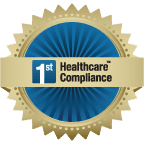When children are small, it can be difficult to tell whether a child is experiencing an allergic reaction to something in their environment or simply has the sniffles. No parent wants their child to suffer needlessly with any sort of lingering symptoms, so understanding what causes allergies, how they’re diagnosed, and what you can do to treat them are all important steps for parents of young ones.
Causes of Allergies
Allergies are typically caused by an abnormal immune response to particles that are otherwise harmless to humans, like pet dander, certain foods, pollens, and dust. Allergies can also be passed down from parent to child through genetics.
Allergic reactions can be mild or severe, immediate or delayed, and seasonal or constant, depending on the child and the particle they are allergic to.
Symptoms of Allergies
Many of the symptoms of an allergic reaction mirror symptoms your body produces when it is battling a cold virus or bacteria, so it can be confusing to tell the difference. A stuffy or runny nose, puffy or itchy eyes, sneezing, ticklish throat, coughing, and face swelling are all common allergy symptoms. Individuals who have food allergies might experience tummy aches, vomiting, or diarrhea after consuming that particular food or drink.
While many allergic reactions are mild, sometimes our immune response to allergens is more severe. If a child has a severe allergic reaction, they might experience anaphylaxis, which is when your air passages become swollen and close. This can be a life threatening allergic reaction. Children who are experiencing anaphylaxis are often taken to the emergency room for an Epi-Pen treatment.
How to Tell If Your Child Has Allergies
If you suspect that your child is allergic to a particular substance, watch how their body responds in various environments. If your child’s symptoms seem to disappear after you’ve been outside of your home for a while, it’s possible your child is allergic to pet dander, mold, or dust particles that are inside your house. If you’ve been out on a hike or playing in the yard for a period of time and your child starts to experience allergic reactions, they may be allergic to something in the external environment, such as certain pollens, grass, or other plant elements.
If you suspect a food allergy, watch how your child’s body responds to foods that can have common allergic responses, like shellfish, peanuts, dairy, or wheat products.
If your child has persistent allergic responses to a variety of substances, there are tests that can be administered to get to the bottom of your child’s allergies. Talk to your pediatrician or ENT specialist at Ashland ENT to learn more about these tests.
Managing Your Child’s Allergies
It is important to be able to manage your child’s allergies. Children with allergic responses are often prone to more ear, nose, and throat infections. Plus, it’s just miserable to suffer from cold and allergy symptoms. Thankfully, there are ways you can manage your child’s allergies.
The first and most obvious way to manage symptoms is to limit your exposure to known allergens. Communicate with your friends and family about various food and environmental allergies so that they can help you manage your child’s symptoms and reduce irritants in your child’s life.
According to ENThealth.org, “Using special air filters, linens, pest control methods, hot water in the washing machine, and changing the way your child interacts with family pets can also help decrease their allergic symptoms.”
Your child’s physician may also recommend medications like nasal sprays, antihistamines, and eye drops for symptoms that you are unable to manage by changing a child’s environment, and for more severe allergic reactions, allergy shots, or under-the-tongue drops might be prescribed.
There are also dietary adjustments you can make to reduce allergic responses, especially during seasonal allergy periods. Maintaining an antihistamine diet can help your child reduce the severity of their allergic reactions.
Talk to Your Doctor
If you suspect that your child is struggling with an allergy or multiple allergies, talk to Ashland ENT about their symptoms. Before your visit, try to observe and document your child’s reactions so that you have a written record to share with your doctor. You might also write down any questions you have regarding your child’s allergies, such as ways to naturally combat their reactions, side effects to prescriptions, which tests are available to diagnose your child, and what you should do if your child goes into anaphylactic shock.
Your local Ashland ENT team specializes in ear, nose, and throat conditions and can help you find answers and relief for your child’s allergies. Reach out to schedule an appointment today.



